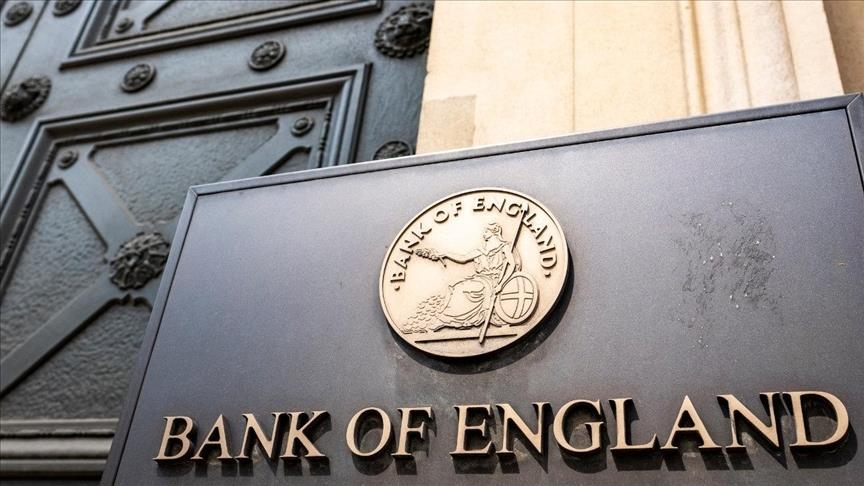In a significant development for the future of digital finance, Professor Darren Duxbury, a distinguished figure in the field of finance and behavioral economics, has recently accepted a pivotal role within the Central Bank Digital Currency (CBDC) Academic Advisory Group at Newcastle University Business School. This group, established to foster collaboration between academia and key stakeholders, will play a crucial role in shaping the design and implementation of the much-discussed digital pound in the United Kingdom.
Professor Duxbury, a seasoned academic with over 30 years of experience in researching and publishing in prestigious journals, brings his wealth of knowledge in behavioral finance to the forefront of discussions surrounding the CBDC. As a Professor of Finance at Newcastle University Business School, his expertise lies in understanding the intricate dynamics of individual, household, and corporate financial decisions.
The CBDC, colloquially known as the digital pound, represents a revolutionary shift in the landscape of currency. If implemented, it would signify a departure from traditional forms of money, as households and businesses would transition to using this new digital currency for everyday transactions. Issued by the Bank of England, the CBDC has become the focal point of discussions between the central bank and HM Treasury.
The formation of the Academic Advisory Group underscores the commitment of the Bank of England and HM Treasury to gather insights from a diverse range of fields relevant to CBDC. Professor Darren Duxbury’s inclusion in this esteemed group is a testament to his remarkable credentials and standing in the academic community.

Professor Duxbury, also a member of the Behavioural Finance Working Group and an Associate Editor for the Review of Behavioural Finance, is no stranger to delving into the intricacies of financial behavior. His extensive background in studying individual, household, and corporate financial decisions positions him as a valuable asset in shaping the future of digital finance.
In a statement, Professor Duxbury expressed his enthusiasm for this new opportunity, saying, “To be able to advise on the development of a new form of money represents a fantastic opportunity to use my behavioral expertise to inform public policy. I am delighted to be asked to join the Academic Advisory Group to the Bank of England and HM Treasury.”
The Academic Advisory Group will be actively involved in the design phase of the digital pound. Professor Duxbury, along with other esteemed members, will contribute their perspectives and insights during meetings, fostering a collaborative environment that encourages the exploration of various aspects of CBDC. Their role extends beyond mere consultation, as they aim to raise awareness about the CBDC’s implications and encourage further research through their academic networks.
Notably, Professor Duxbury is currently at the forefront of an academic-industry research collaboration with NatWest Bank. This collaboration investigates the drivers of consumer payment behavior, including attitudes and intentions towards cash. The research, highly relevant to the goals of the Academic Advisory Group, aims to provide a comprehensive understanding of the behavioral drivers influencing individuals’ attitudes and intentions towards different forms of payment.
According to a recent study led by Professor Duxbury, decisions to use cash are influenced by a person’s level of financial literacy and their propensity for habitual behavior. This valuable insight into the behavioral aspects of payment choices will undoubtedly contribute to the broader discussions within the Academic Advisory Group.
In explaining his goals as part of the AAG and his contributions to the discovery phase, Professor Duxbury stated, “My research is all about understanding individual, household, and corporate financial behavior. In recent work, after taking account of socioeconomic background, we find compelling evidence that behavioral drivers, including an individual’s propensity for habitual behavior and their level of financial literacy, influence intentions to use cash.”
Furthermore, he emphasized that while payment intention habits might form, shifts in response to economic circumstances and security breaches demonstrate that such habits are not immune to change. This nuanced understanding of financial behavior becomes instrumental in accurately forecasting the speed, scale, and steady state of adoption of the digital pound.

As the CBDC takes center stage in the financial landscape, Professor Darren Duxbury’s role in the Academic Advisory Group positions him as a thought leader in shaping the future of digital currency in the United Kingdom. His expertise in behavioral finance promises to provide a unique perspective that goes beyond the technical aspects of digital currency, delving into the intricacies of human decision-making that will inevitably shape the success of the digital pound. As the academic community collaborates with key stakeholders, including the Bank of England and HM Treasury, the trajectory of the CBDC and its impact on everyday transactions will undoubtedly benefit from the wealth of knowledge that Professor Duxbury brings to the table.
Referrence:
https://www.ncl.ac.uk/business/people/profile/darrenduxbury.html



